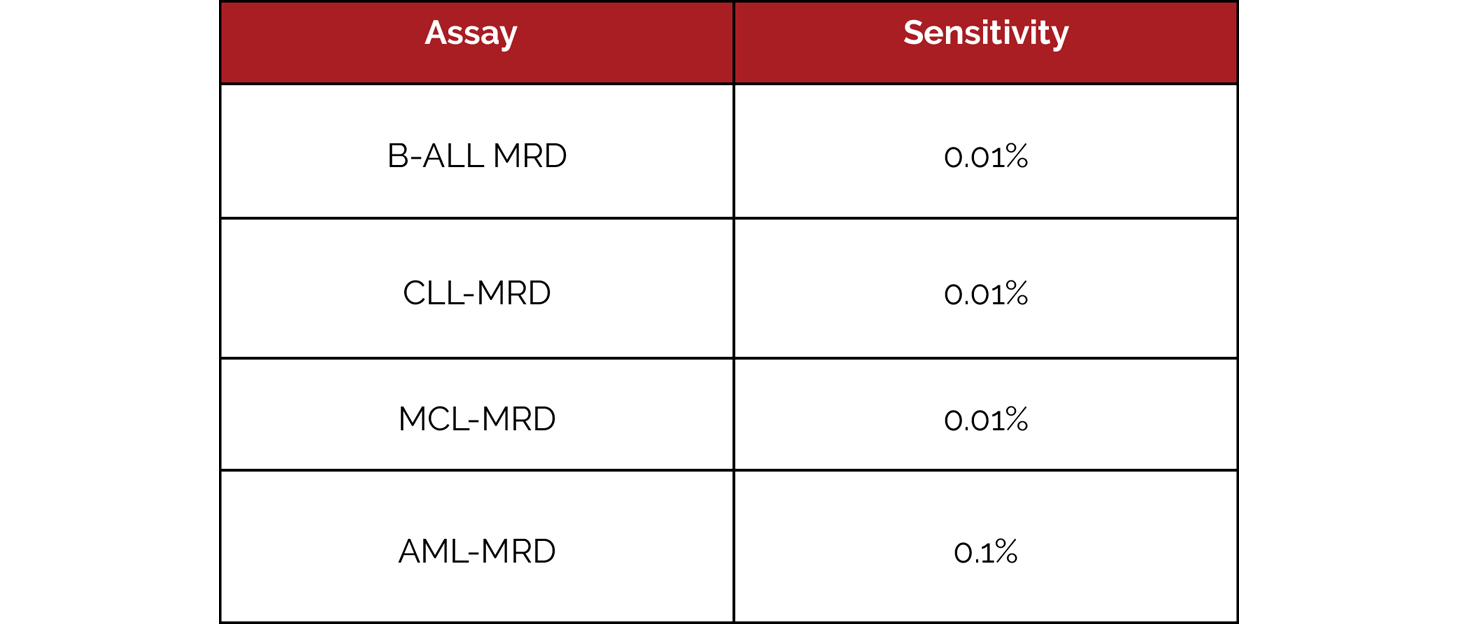Flow Cytometry
Our state-of-the-art flow cytometers cover both regulated and exploratory clinical applications with up to 28 parameters. We also have one of the largest scientific teams in the clinical lab industry with over 200 years of cumulative clinical experience.
Our Flow Cytometry applications includes:
- Immune cells composition and function
- Disease progression and monitoring
- Cellular kinetics
Cell Therapy Clinical Development Support by Flow Cytometry:
- High Dimensional Flow Cytometry Assay to fulfill manufacturing, PK & Biomarker endpoint in cell and gene therapy Clinical Trials
- Drug levels
- Accurate identification and reporting of cell and gene therapy levels
- Receptor Occupancy
- Drug efficacy
- Correlation of cell and gene therapy clinical response with Measurable Residual Disease (MRD) assessments
- Superior prediction of survival by MRD
- Resistance and safety
- Evolution of target negative cells versus disease relapse
- Emergence of early B-cells versus IVIG administration
MRD Assays at Navigate
We have multiple Flow Cytometry assays to monitor T-cell modulation including:
- T/NK Exhaustion
- T-Resistance
- T cell proliferation
- T-maturation
- T-differentiation
- T/B-regulatory
Comprehensive Lymphocyte Monitoring in Clinical Trials
Immunotherapy has revolutionized treatment of many cancers by harnessing the power of the immune system to target and eradicate malignant cells. Central to the efficacy of these therapeutic strategies are T cells and natural killer (NK) cells, both of which play pivotal roles in the immune response. Understanding and monitoring the biomarkers associated with these cells can provide critical insights into the patient’s immune status, treatment response, and potential outcomes (Huang, 2017).
Spectral flow cytometry captures the full emission spectrum of fluorescent molecules using arrays of highly sensitive light detectors. One key advantage of spectral flow cytometry is its ability to utilize mathematical algorithms to efficiently resolve overlapping emission spectra in contrast to historical manual compensation that limited the number of fluorochromes, and therefore biomarkers, to be explored in a single tube, thus enabling design of ultra-high parametric analysis capable of providing over four million immunophenotypes from a single assay.
One significant advancement of spectral flow cytometry is its ability to detect and analyze multiple fluorescent markers simultaneously, far exceeding the limitations of traditional flow cytometry, which often requires multiple tubes to achieve similar levels of multiplexing. This increased capacity allows for more comprehensive and efficient phenotypic and functional characterization of cells within a single tube, thereby conserving precious samples, reducing processing time, and enhancing data consistency. Navigate BioPharma has developed multiple full spectral flow panels to cover broad immunophenotyping across multiple diseases. Our comprehensive TNK assay was developed for broad T and NK biomarker monitoring to cover a wide array of immune cells across multiple diseases using full spectrum flow cytometry.
Benefits
Patient centric – Minimum amount of blood from vulnerable patient populations. e.g., Consumes 4-fold less specimen while providing 8-fold more data (4 million phenotypes)
Flexible – Validated on cryopreserved PBMC for prospective & retrospective clinical trial use
Reliable – Superior resolution of immune cell phenotypes with intermediate biomarker expression
- Amenable to literature driven (manual) gating and hypothesis driven (un-biased) clustering by AI algorithms

